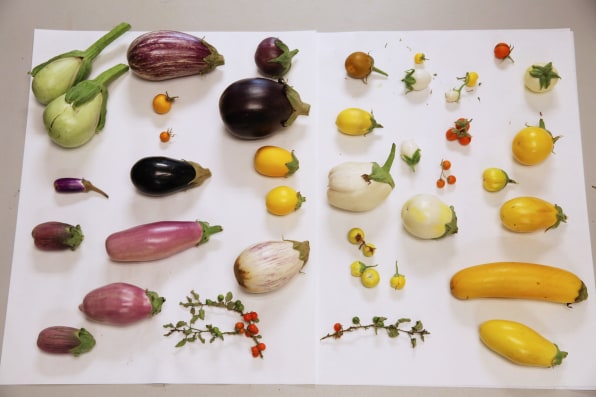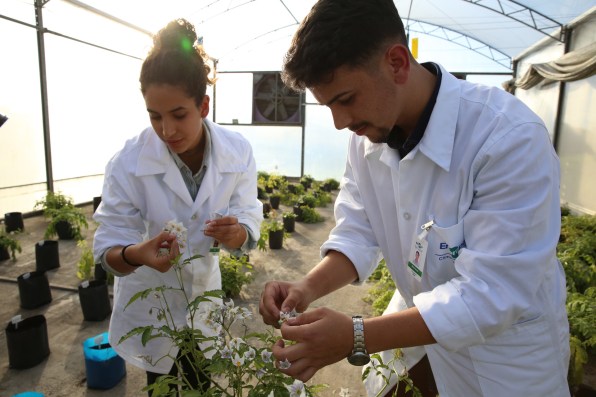Over the last six years, more than 100 scientists have combed the globe looking for seeds of wild plants related to the crops that humans rely on for food. The goal: to find varieties that can better survive climate change.
advertisementIf we are to feed a growing population, we need to make our food crops more resilient, Marie Haga, executive director of the Crop Trust, the nonprofit that managed the project to collect the seeds, said in a press release. And crop wild relatives can help breeders develop new climate-proof varieties.
 [Photo: courtesy Crop Trust]
[Photo: courtesy Crop Trust]Researchers in the project visited 25 countries to collect 4,644 seed samples, representing 371 wild relatives of 28 important crops. The work was often difficult. In Nepal, scientists searching for wild rice traveled on elephants to try to ward off attacks by tigers and rhinos; in Nigeria, progress was delayed by Boko Haram and flooding.
But it s critically important that the seed collection happens now, they say, particularly because some varieties of plants are already being lost. In Costa Rica, for example, a former wild area where previous collectors had found wild rice had been replaced by urban sprawl and farming. In Ethiopia, a dam under construction was quickly destroying another swath of wilderness. While this isn t the first project to save seeds, it tried to fill in gaps, since some important species were underrepresented in gene banks or completely missing.
 [Photo: courtesy Crop Trust]
[Photo: courtesy Crop Trust]As climate change progresses, it s already getting harder to grow food global yields of key crops such as rice and wheat are beginning to shrink. By the middle of the century, as the global population grows and there s an even greater demand for food, there will be more pressure on farms from extreme weather. Farmers need tougher varieties of plants that can better survive heat waves, drought, and flooding. And wild plants have adapted in unique ways that could help. A carrot relative in the seed project, for example, evolved to grow in salty water. An oat relative is resistant to a disease that can decimate farmed oats. A relative of Bambara groundnut, an important African crop, is better adapted to hot weather and drought.
The seeds are now stored in gene banks, where breeders can begin to cross them with domestic varieties of the plants to create versions that look and taste like standard crops but are better able to survive.
advertisementadvertisementadvertisementAbout the authorAdele Peters is a staff writer at Fast Company who focuses on solutions to some of the world's largest problems, from climate change to homelessness. Previously, she worked with GOOD, BioLite, and the Sustainable Products and Solutions program at UC Berkeley, and contributed to the second edition of the bestselling book "Worldchanging: A User's Guide for the 21st Century."
Ideas Newsletter
Sign UpReceive special Fast Company offers.See All NewslettersVideoImpact




